
Foa Island: A Tropical Paradise in Tonga
Foa Island, part of the Ha'apai group in Tonga, is a hidden gem that offers pristine beaches, crystal-clear waters, and a tranquil atmosphere. This island is ideal for travelers seeking a serene escape away from the hustle and bustle of daily life. Its unspoiled natural beauty makes it a perfect spot for snorkeling, diving, and simply relaxing by the shore. One of the most captivating features of Foa Island is its warm and welcoming local culture. Visitors can experience traditional Tongan hospitality, witness local dances, and savor delicious Tongan cuisine. The island's small, close-knit community ensures that every visitor feels like a part of the family. In addition to its stunning beaches, Foa Island offers various activities for adventure enthusiasts. From exploring the vibrant coral reefs teeming with marine life to kayaking through the island's serene lagoons, there's something for everyone. Nature lovers will also appreciate the opportunity to spot humpback whales during the migration season, a truly unforgettable experience. Accommodations on Foa Island range from cozy beachfront bungalows to eco-friendly resorts, providing a range of options to suit different preferences and budgets. Whether you're looking for a romantic getaway or a family vacation, Foa Island promises a memorable and rejuvenating experience.
Local tips in Foa Island
- Bring reef-safe sunscreen to protect the marine life while enjoying water activities.
- Visit during whale migration season (July to October) for a chance to see humpback whales.
- Try the local Tongan lū, a traditional dish made with taro leaves and coconut milk.
- Pack light, breathable clothing to stay comfortable in the tropical climate.
- Respect local customs and traditions, such as wearing modest clothing when visiting villages.
Foa Island: A Tropical Paradise in Tonga
Foa Island, part of the Ha'apai group in Tonga, is a hidden gem that offers pristine beaches, crystal-clear waters, and a tranquil atmosphere. This island is ideal for travelers seeking a serene escape away from the hustle and bustle of daily life. Its unspoiled natural beauty makes it a perfect spot for snorkeling, diving, and simply relaxing by the shore. One of the most captivating features of Foa Island is its warm and welcoming local culture. Visitors can experience traditional Tongan hospitality, witness local dances, and savor delicious Tongan cuisine. The island's small, close-knit community ensures that every visitor feels like a part of the family. In addition to its stunning beaches, Foa Island offers various activities for adventure enthusiasts. From exploring the vibrant coral reefs teeming with marine life to kayaking through the island's serene lagoons, there's something for everyone. Nature lovers will also appreciate the opportunity to spot humpback whales during the migration season, a truly unforgettable experience. Accommodations on Foa Island range from cozy beachfront bungalows to eco-friendly resorts, providing a range of options to suit different preferences and budgets. Whether you're looking for a romantic getaway or a family vacation, Foa Island promises a memorable and rejuvenating experience.
When is the best time to go to Foa Island?
Iconic landmarks you can’t miss
Mapu'a Vaea Blowholes
Discover the breathtaking Mapu'a Vaea Blowholes in Tonga, where ocean waves create a spectacular display of nature's power and beauty.
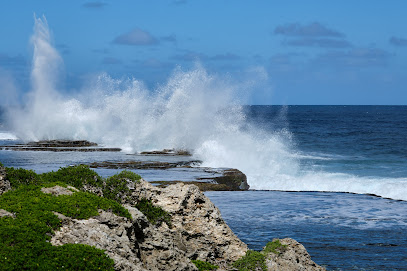
Royal Palace of Tonga
Explore the Royal Palace of Tonga and immerse yourself in the rich history and vibrant culture of this majestic Polynesian kingdom.
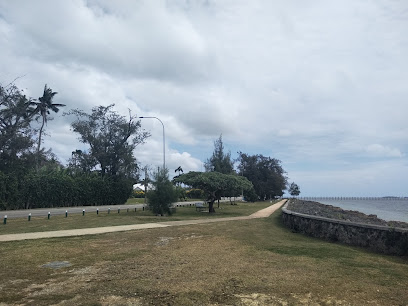
Anahulu Cave
Explore Anahulu Cave, a natural wonder in Haveluliku, Tonga, featuring stunning limestone formations and serene crystal-clear waters perfect for adventure seekers.
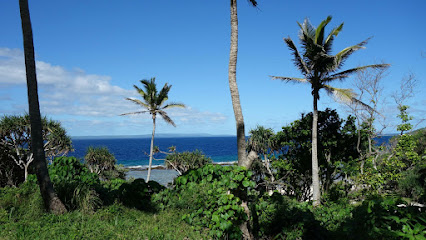
Royal Tombs
Explore the Royal Tombs of Tonga, a historical landmark that reveals the rich heritage and royal traditions of the Tongan monarchy in a serene setting.
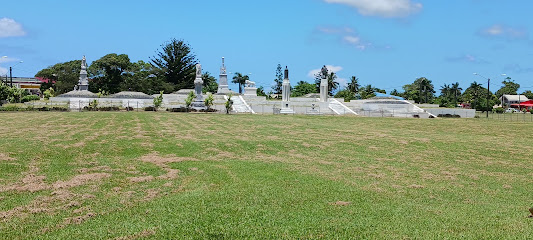
Tsunami Rock
Experience the breathtaking Tsunami Rock in Tonga, a remarkable geological formation steeped in local folklore and surrounded by stunning natural beauty.
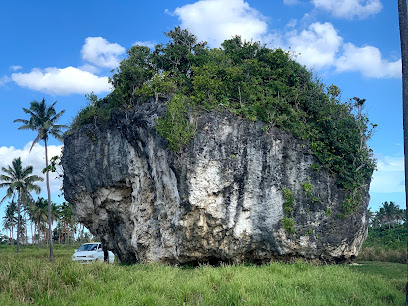
Ancient Tonga
Explore Ancient Tonga: A Cultural Treasure Trove in Nuku'alofa, Showcasing Rich Traditions and Stunning Natural Beauty.
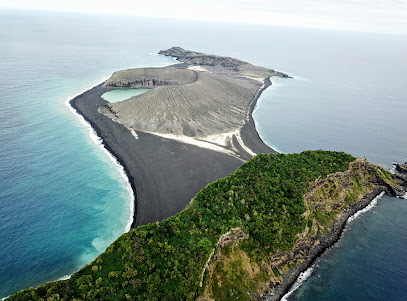
Ha'amonga 'a Maui Trilithon
Explore the Ha'amonga 'a Maui Trilithon, a captivating historical landmark in Tonga, revealing ancient Tongan culture and breathtaking architecture amidst stunning landscapes.
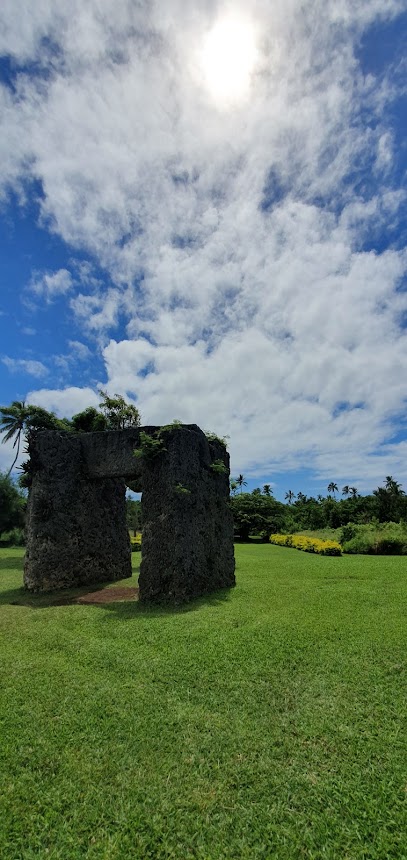
Ha'atafu Beach
Discover the enchanting beauty of Ha'atafu Beach in Tonga, a serene escape with pristine sands and vibrant marine life.
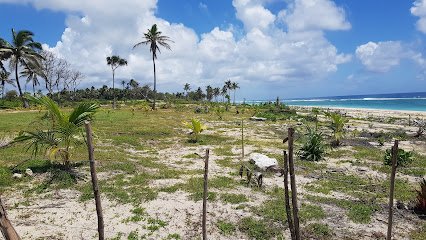
Captain Cook Landing Site
Discover the historical significance of the Captain Cook Landing Site in Alaki, Tonga, where adventure and culture intertwine amidst stunning ocean views.
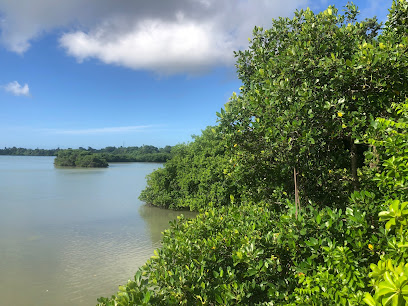
Paepae o Tele'a
Explore the historical marvel of Paepae o Tele'a in Mu'a, Tonga – a captivating glimpse into the rich heritage and culture of the islands.
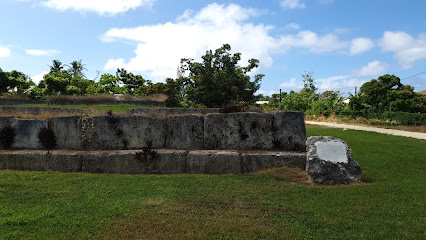
Tonga National Museum
Explore the vibrant heritage of Tonga at the National Museum, featuring rich exhibits of history, art, and culture.
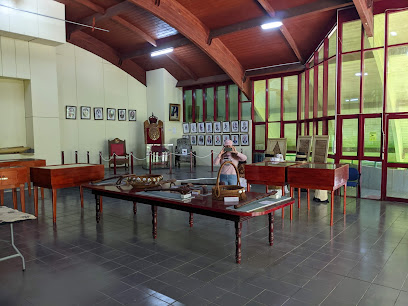
Maka Fa'akinanga
Explore the rich cultural heritage of Maka Fa'akinanga, a historical landmark in Niutoua, Tonga, offering breathtaking views and deep historical significance.
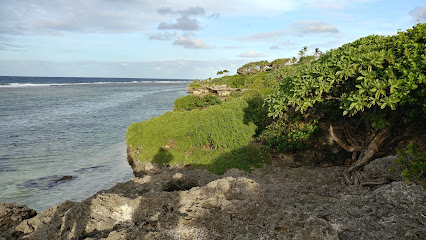
ʻEua National Park
Explore 'Eua National Park, a breathtaking national park in Tonga that offers stunning landscapes, rich biodiversity, and unforgettable outdoor adventures.
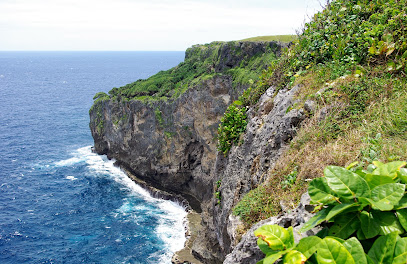
Hufangalupe
Experience the breathtaking beauty of Hufangalupe Bridge in Fua'amotu, a stunning architectural marvel offering panoramic views and rich cultural encounters.
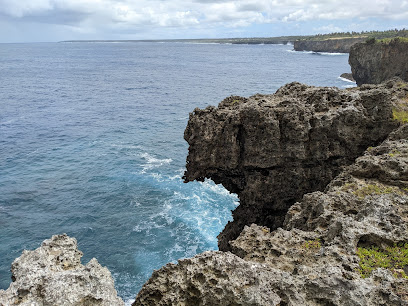
Fahefa Beach
Experience the tranquil beauty of Fahefa Beach in Tonga, where pristine sands meet crystal-clear waters for an unforgettable tropical escape.

Essential places to dine
Coffee Post
Discover the rich flavors of Tongan coffee at Coffee Post in Nuku'alofa – where every sip tells a story.
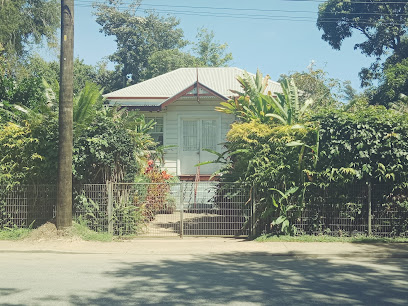
Little Italy Hotel
Experience authentic Italian flavors and warm hospitality at Little Italy Hotel in Nuku'alofa – your perfect getaway in Tonga.

Friends Cafe
Experience local flavors at Friends Cafe in Nuku'alofa - A cozy retreat for coffee lovers and food enthusiasts alike.
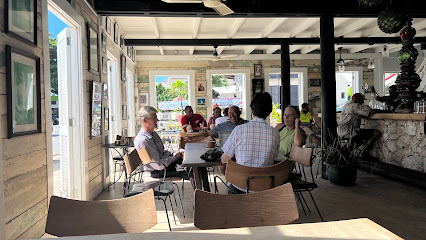
Cafe Escape
Experience authentic Tongan cuisine at Cafe Escape in Nuku'alofa - where flavor meets hospitality in a cozy setting.
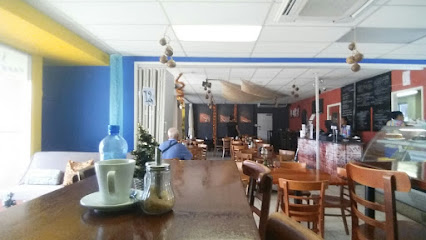
Billfish Bar and Restaurant
Discover authentic Tongan flavors at Billfish Bar and Restaurant in Nuku'alofa – where every meal is a taste of paradise.
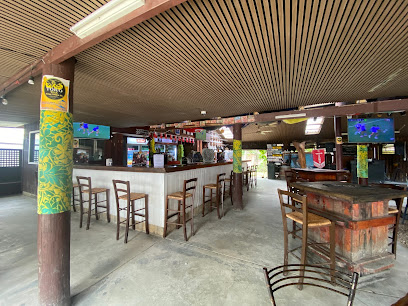
Chef Zero Restaurant
Experience authentic Tongan flavors at Chef Zero Restaurant in Nuku'alofa - where local ingredients meet culinary creativity.
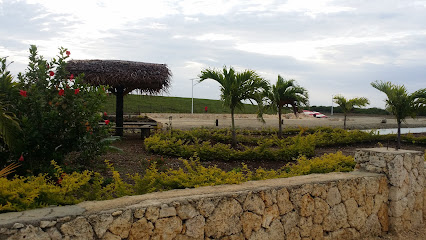
The TOP Restaurant and Lounge
Experience the fusion of Tongan cuisine and modern flavors at The TOP Restaurant and Lounge in Nuku'alofa.
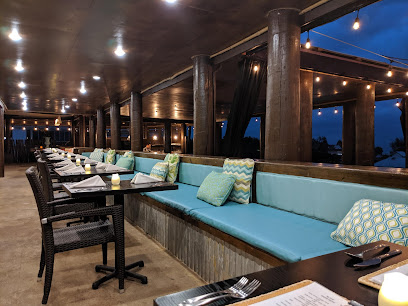
Mum's Cafe Nukualofa
Discover authentic Tongan flavors at Mum's Cafe in Nuku'alofa - your gateway to local cuisine amidst stunning tropical surroundings.
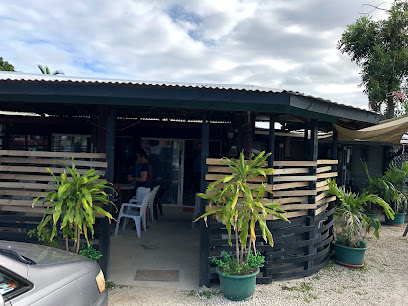
Tupu'anga Coffee Factory and Cafe
Experience authentic Tongan coffee at Tupu'anga Coffee Factory and Cafe, where every cup tells a story of local heritage and flavor.
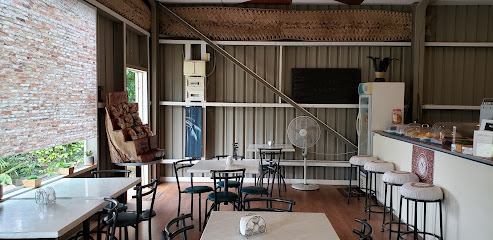
Young’s Kitchen
Experience authentic Tongan flavors at Young's Kitchen in Nuku'alofa - a culinary gem serving delicious local dishes.
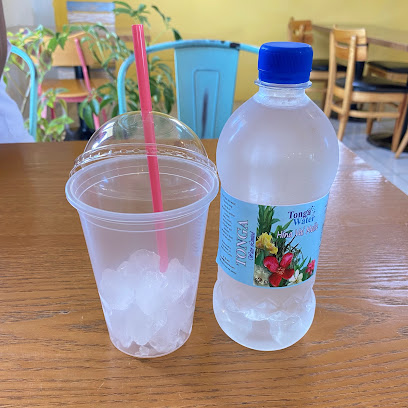
The Waterfront Cafe
Experience local flavors and breathtaking ocean views at The Waterfront Cafe in Nuku'alofa – A must-visit destination for every traveler.
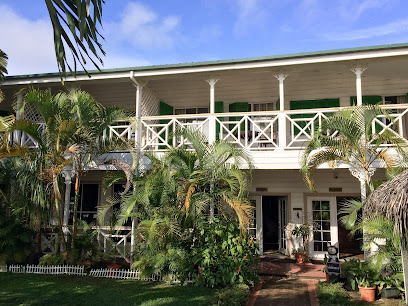
Sabrina's Chicken Vilovilo
Experience authentic Tongan barbecue at Sabrina's Chicken Vilovilo – where every bite tells a story.
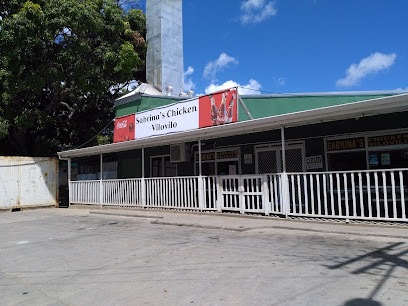
Nauti Ruby's Bar & Restaurant
Experience tropical bliss at Nauti Ruby's Bar & Restaurant in Nuku'alofa - where delicious food meets stunning ocean views.
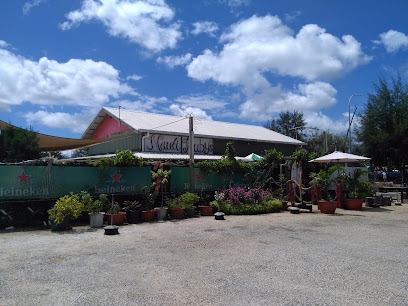
Tropical Taste
Experience authentic Tongan flavors at Tropical Taste in Nuku'alofa - where every dish tells a story.
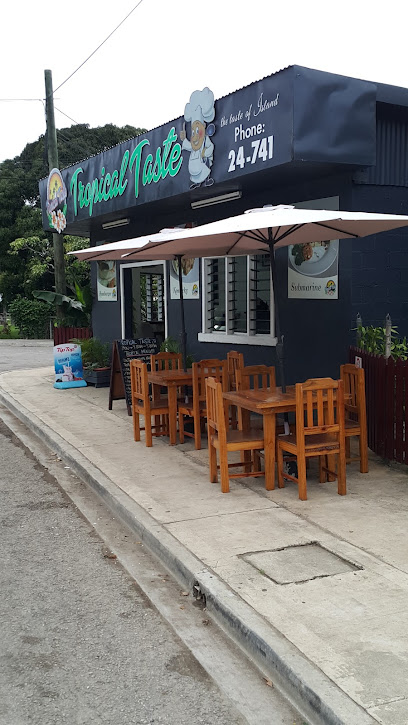
Moli Green Cafe
Discover Moli Green Cafe in Nuku'alofa – where Tongan hospitality meets exceptional coffee and delicious bites.
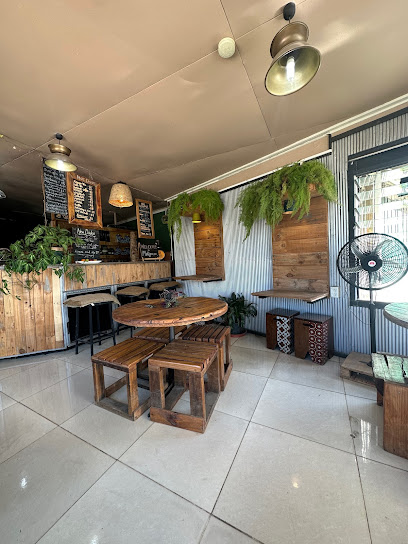
Markets, malls and hidden boutiques
Tanoa International Dateline Hotel
Discover the perfect blend of luxury and Tongan culture at Tanoa International Dateline Hotel, where comfort meets adventure in Nuku'alofa.

Talamahu Market
Experience the vibrant atmosphere of Talamahu Market in Nuku'alofa, where fresh produce meets Tongan culture and local craftsmanship.
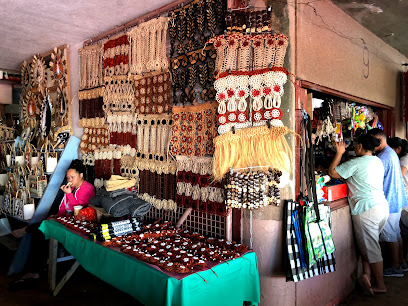
Vuna Wharf
Experience the tranquility and beauty of Vuna Wharf, a gateway to Tonga's stunning islands and vibrant culture, perfect for all adventurous travelers.
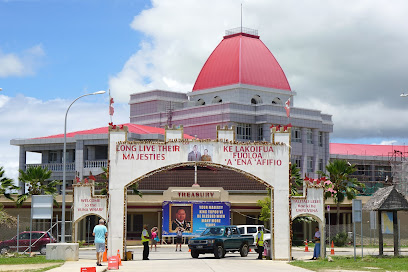
Costlow Supermarket
Explore the vibrant offerings of Costlow Supermarket in Pea, Tonga, where local flavors meet international goods for an unforgettable shopping experience.
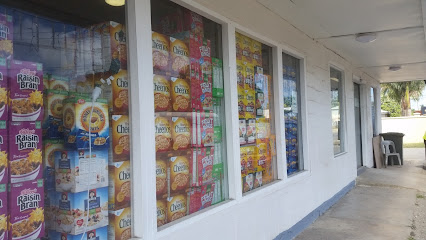
Hiki 'O Tonga
Explore Hiki 'O Tonga, Nuku'alofa's premier shopping mall, offering a charming blend of local crafts and international brands for an unforgettable experience.
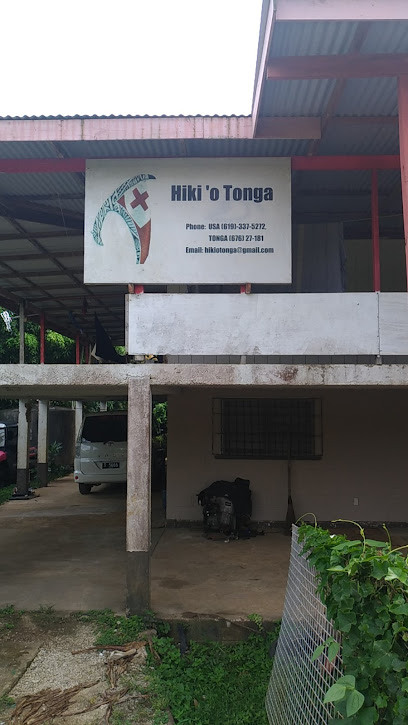
Backpackers Townhouse
Experience the warmth of Tongan hospitality at Backpackers Townhouse, the perfect bed and breakfast for your Nuku'alofa adventure.

EZ TONGA ONLINE SHOPPING
Discover the essence of Tonga through EZ Tonga Online Shopping's unique local products, from food to handicrafts, all at your fingertips.

Langafonua Handicraft Centre and Gallery
Discover authentic Tongan crafts and art at Langafonua Handicraft Centre, a cultural gem in Nuku'alofa showcasing local artisans' talents.
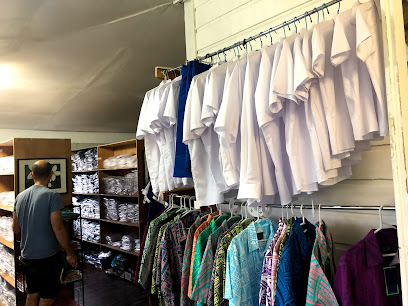
Friendly Island Bookshop
Explore the rich tapestry of Tongan culture through literature at the Friendly Island Bookshop in Nuku'alofa.
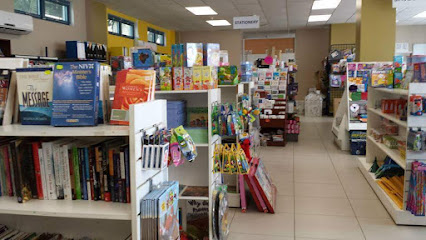
Leiola
Explore Leiola in Nuku'alofa - a beer lover's paradise offering a diverse selection of local and international brews in a friendly atmosphere.
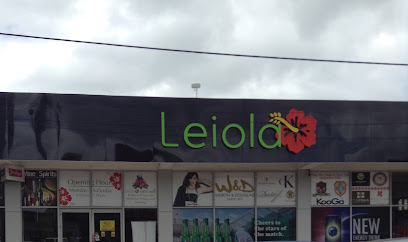
Fakafeta'i Store
Experience the essence of Tonga at Fakafeta'i Store, a local gem offering authentic products and warm community hospitality.
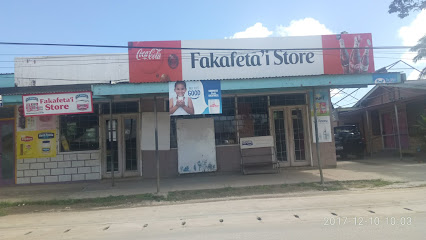
Fiefia Travel
Experience the best of Tonga with Fiefia Travel: your go-to hardware store for travel essentials and local crafts in Tofoa.

Le-Ata Tonga
Discover the vibrant culture of Tonga through unique clothing and handcrafted items at Le-Ata Tonga in Nuku'alofa.
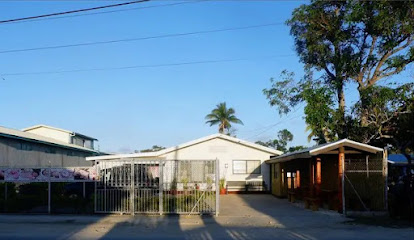
America Surplus
Explore unique home goods at America Surplus in Nuku'alofa, where local culture meets quality craftsmanship for an unforgettable shopping experience.
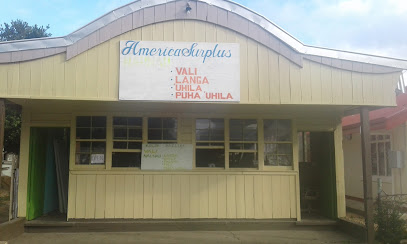
Lion Liquor
Discover the flavors of Tonga at Lion Liquor, your one-stop destination for local and international beers in Nuku'alofa.
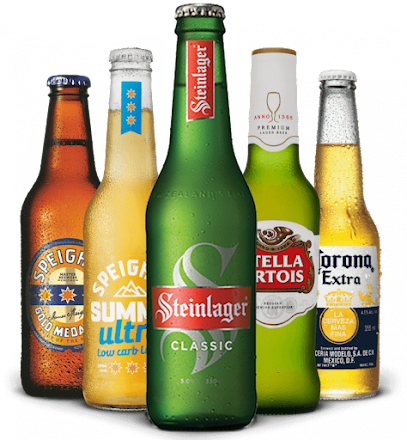
Essential bars & hidden hideouts
Little Italy Hotel
Experience authentic Italian cuisine and warm hospitality at Little Italy Hotel in Nuku'alofa, a delightful blend of comfort and culinary excellence.

Friends Cafe
Discover the flavors of Tonga at Friends Cafe, a cozy spot in Nuku'alofa offering delicious local cuisine and a welcoming atmosphere.
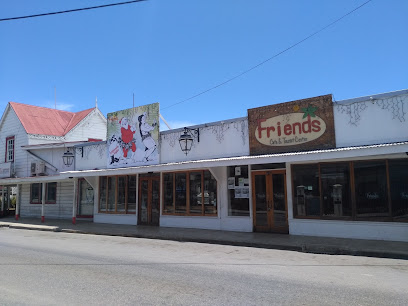
Cafe Escape
Discover local flavors and a warm tropical ambiance at Cafe Escape, a top dining destination in Nuku'alofa, Tonga.
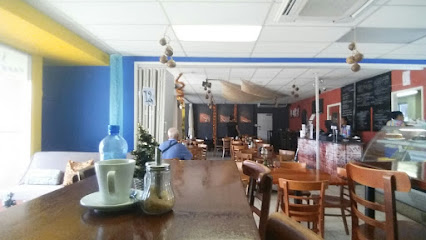
Billfish Bar and Restaurant
Discover the vibrant flavors and stunning seaside views at Billfish Bar and Restaurant in Nuku'alofa, Tonga.
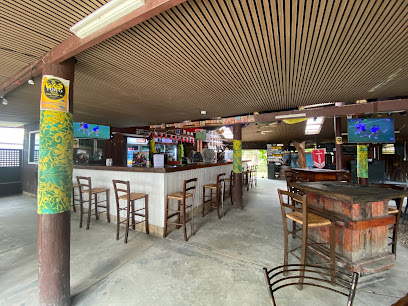
Chef Zero Restaurant
Experience the vibrant flavors of Tonga at Chef Zero Restaurant in Nuku'alofa, where local ingredients meet culinary creativity in a welcoming atmosphere.
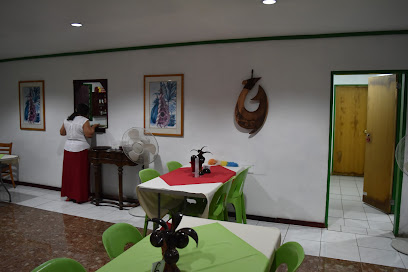
The TOP Restaurant and Lounge
Discover the authentic flavors of Tonga at The TOP Restaurant and Lounge, offering a unique dining experience in Nuku'alofa with stunning views.
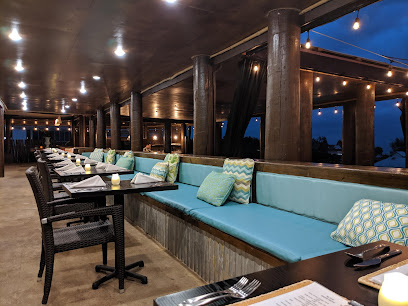
Young’s Kitchen
Discover the authentic flavors of Tongan cuisine at Young's Kitchen in Nuku'alofa, a culinary delight for every traveler.
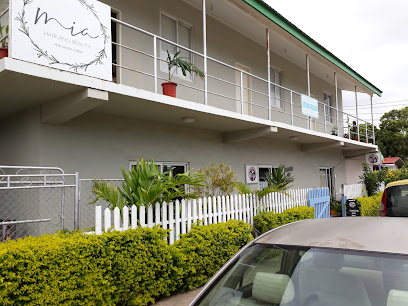
Nauti Ruby's Bar & Restaurant
Discover the vibrant flavors and stunning views of Nauti Ruby's Bar & Restaurant in Nuku'alofa, Tonga's coastal treasure.
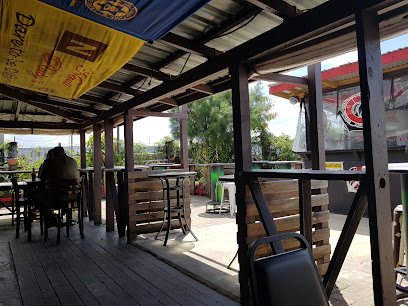
Sabrina's Chicken Vilovilo
Experience the authentic taste of Tonga at Sabrina's Chicken Vilovilo, where delicious barbecue meets warm hospitality in Nuku'alofa.
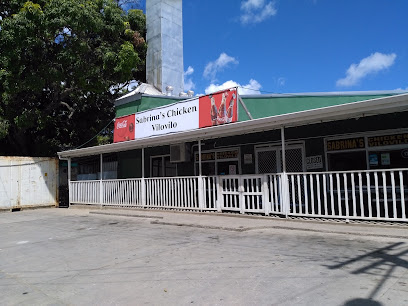
Reload Bar
Discover the lively atmosphere and refreshing cocktails at Reload Bar, a vibrant hotspot in Nuku'alofa, Tonga.
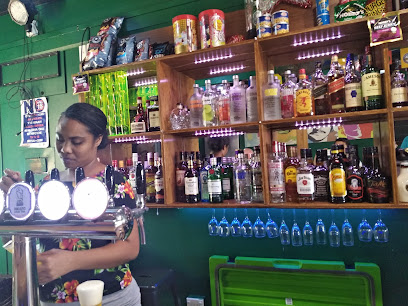
Tali'eva Inn Bar
Experience the vibrant nightlife and warm hospitality at Tali'eva Inn Bar in Nuku'alofa, a must-visit for tourists seeking authentic Tongan culture.
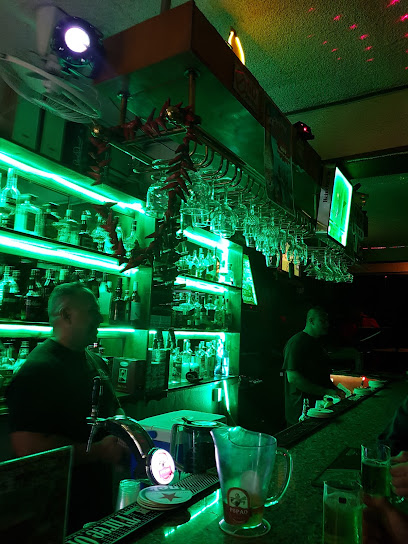
Big Mama's Bar
Experience tropical bliss at Big Mama's Bar, where refreshing drinks and stunning ocean views await in Nuku'alofa.
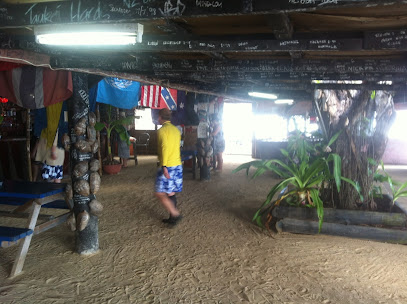
tiger inn
Discover the authentic tastes of Tonga at Tiger Inn, a cozy restaurant in Nuku'alofa, where local flavors meet international cuisine.
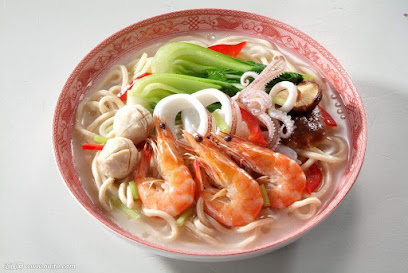
Ofa Ki Tonga Pizza hut
Discover delectable pizzas at Ofa Ki Tonga Pizza Hut in Nuku'alofa, where local hospitality meets global flavors.

Local Phrases about Foa Island
-
- HelloMalo e lelei
[mah-loh eh leh-leh] - GoodbyeOfa atu
[oh-fah ah-too] - YesIo
[ee-oh] - NoʻIkai
[ee-kah-ee] - Please/You're welcomeFakamolemole
[fah-kah-moh-leh-moh-leh] - Thank youMālō
[mah-loh] - Excuse me/SorryFakamolemole
[fah-kah-moh-leh-moh-leh] - How are you?ʻEku ha tali?
[eh-koo hah tah-lee] - Fine. And you?ʻEku ha tali?
[eh-koo hah tah-lee] - Do you speak English?Te ke fai ha lea fakapālangi?
[teh keh fai hah leh-ah fah-kah-pah-lahng-ee] - I don't understandʻIkai ke maʻu
[ee-kah-ee keh mah-oo]
- HelloMalo e lelei
-
- I'd like to see the menu, pleaseʻEku keke lava ke vakai ha meniu, fakamolemole
[eh-koo keh-keh lah-vah keh vah-kah-ee hah meh-nee-oo fah-kah-moh-leh-moh-leh] - I don't eat meatʻIkai ke ʻai meʻa moʻui
[ee-kah-ee keh ah-ee meh-ah moh-oo-ee] - Cheers!Mālō ā
[mah-loh ah] - I would like to pay, pleaseʻEku keke lava ke totongi, fakamolemole
[eh-koo keh-keh lah-vah keh toh-toh-ngi fah-kah-moh-leh-moh-leh]
- I'd like to see the menu, pleaseʻEku keke lava ke vakai ha meniu, fakamolemole
-
- Help!Malō!
[mah-loh] - Go away!Alu ki tua!
[ah-loo kee too-ah] - Call the Police!Foni ki he Pulese!
[foh-nee kee heh poo-leh-seh] - Call a doctor!Foni ki he kaukau!
[foh-nee kee heh kow-kow] - I'm lostNaʻe ʻalu
[nah-eh ah-loo] - I'm illNaʻe fā
[nah-eh fah]
- Help!Malō!
-
- I'd like to buy...ʻEku keke lava ke fakatau...
[eh-koo keh-keh lah-vah keh fah-kah-tah-oo] - I'm just lookingʻEku keke ʻalu ki he fānau
[eh-koo keh-keh ah-loo kee heh fah-nah-oo] - How much is it?Ko e hiki ia?
[koh eh hee-kee ee-ah] - That's too expensiveTōtonu ia
[toh-toh-noo ee-ah] - Can you lower the price?Ko e hiki keke ia?
[koh eh hee-kee keh-keh ee-ah]
- I'd like to buy...ʻEku keke lava ke fakatau...
-
- What time is it?Ko e hola ia?
[koh eh hoh-lah ee-ah] - It's one o'clockKo e taha
[koh eh tah-hah] - Half past (10)ʻE taha ʻe hongofulu
[eh tah-hah eh hoh-ngoh-foo-loo] - MorningPō
[poh] - AfternoonʻAhia
[ah-hee-ah] - EveningPō
[poh] - YesterdayʻAho neʻi
[ah-hoh neh-ee] - TodayʻAho ni
[ah-hoh nee] - TomorrowʻAho ʻapongipongi
[ah-hoh ah-poh-ngi-poh-ngi] - 1Taha
[tah-hah] - 2Fua
[foo-ah] - 3Tolu
[toh-loo] - 4Fā
[fah] - 5Nima
[nee-mah] - 6Ono
[oh-noh] - 7Fitu
[fee-too] - 8Valu
[vah-loo] - 9Hiva
[hee-vah] - 10Hongofulu
[hoh-ngoh-foo-loo]
- What time is it?Ko e hola ia?
-
- Where's a/the...?Ko feva...
[koh feh-vah] - What's the address?Ko e tuunga ia?
[koh eh too-oo-ngah ee-ah] - Can you show me (on the map)?Ko e hiki keke ia (ki he maapu)?
[koh eh hee-kee keh-keh ee-ah (kee heh mah-ah-poo)] - When's the next (bus)?Ko e hola ia e toe (pasi)?
[koh eh hoh-lah ee-ah eh toh-eh pah-see] - A ticket (to ....)Tikiti (ki ...)
[tee-kee-tee (kee)]
- Where's a/the...?Ko feva...
History of Foa Island
-
Foa Island, part of the Ha'apai group in Tonga, has a rich history dating back to early Polynesian settlers. Archaeological findings suggest that the island was inhabited as early as 1500 BCE. These early settlers were skilled navigators and fishermen, whose advanced knowledge of the ocean and stars allowed them to traverse vast distances across the Pacific. Their influence is still evident today in the local culture, language, and traditional practices.
-
The first recorded European contact with Foa Island occurred in the 17th century. Dutch navigator Abel Tasman sighted the island in 1643 during his Pacific expedition. Later, in the 18th century, British explorer Captain James Cook visited the Ha'apai islands, including Foa, during his voyages. These encounters marked the beginning of increased European interest and influence in the region.
-
In the early 19th century, Christian missionaries arrived on Foa Island with the aim of converting the local population. The London Missionary Society played a significant role in this endeavor. Their presence led to significant changes in the island's social and cultural landscape, including the adoption of Christianity, changes in traditional governance, and the introduction of Western education.
-
Foa Island, like much of Tonga, was affected by the Tongan Civil Wars in the 19th century. These conflicts arose from power struggles among various chiefly lines and the unification efforts led by King George Tupou I. The island's strategic location in the Ha'apai group made it a notable site during these tumultuous times, impacting local leadership and alliances.
-
The global influenza pandemic of 1918 reached Tonga and had devastating effects on Foa Island. The virus was introduced through visiting ships, leading to widespread illness and a significant loss of life. The pandemic's impact on the island's population was profound, affecting social structures and community resilience.
-
In recent decades, Foa Island has seen gradual development, with a focus on sustainable tourism. Efforts have been made to preserve the island's natural beauty and cultural heritage while providing modern amenities for visitors. Today, Foa is known for its pristine beaches, vibrant marine life, and rich cultural experiences, attracting travelers from around the world.
Foa Island Essentials
-
Foa Island is part of the Ha'apai group in Tonga. The most common way to reach Foa Island is by flying into the Salote Pilolevu Airport in Pangai on the nearby island of Lifuka. Domestic flights are available from Tongatapu, the main island where the international airport Fua'amotu is located. From Lifuka, you can take a short boat ride or a taxi across the causeway to Foa Island.
-
Foa Island is small and most of its attractions are within walking distance. For longer trips, bicycles are a popular mode of transportation and can be rented from local shops or your accommodation. Taxis are also available but may need to be arranged in advance. There are no public buses on Foa Island.
-
The official currency of Tonga is the Tongan Paʻanga (TOP). While some accommodations and larger restaurants may accept credit cards, it's advisable to carry cash, especially for smaller establishments and markets. ATMs are available in Pangai on Lifuka, but it’s wise to withdraw sufficient cash before arriving on Foa Island.
-
Foa Island is generally a safe destination with low crime rates. However, it's always best to take standard precautions. Avoid leaving valuables unattended and be cautious when walking alone at night. There are no specific high-crime areas targeting tourists, but being aware of your surroundings is always a good practice.
-
In case of emergency, dial 911 for immediate assistance. The nearest medical facilities are located in Pangai on Lifuka Island. It is highly recommended to have travel insurance that covers medical emergencies. For minor health issues, there are pharmacies in Pangai where you can purchase over-the-counter medications.
-
Fashion: Do dress modestly, especially when visiting local villages. Avoid wearing revealing clothing. Religion: Do respect local customs and traditions, including attending church services if invited. Public Transport: As there is no public transport, rely on walking or cycling. Don't expect readily available taxis without prior arrangement. Greetings: Do greet locals with a friendly 'Mālō e lelei' (Hello). Eating & Drinking: Do try local dishes and accept food offerings graciously. Don't refuse hospitality, as it is considered impolite.
-
To experience Foa Island like a local, visit the local markets in Pangai where you can buy fresh produce and traditional Tongan goods. Participate in a kava ceremony if invited, and enjoy the slower pace of island life. Engage with locals who are often friendly and willing to share stories about their culture and history. Don’t miss out on exploring the pristine beaches and coral reefs, which are ideal for snorkeling and diving.
Nearby Cities to Foa Island
-
Things To Do in Pangai
-
Things To Do in Nuku'alofa
-
Things To Do in Neiafu
-
Things To Do in Ha'apai
-
Things To Do in Ha'ano
-
Things To Do in Vava'u
-
Things To Do in Kolovai
-
Things To Do in Eua
-
Things To Do in Levuka
-
Things To Do in Nausori
-
Things To Do in Suva
-
Things To Do in Rakiraki
-
Things To Do in Savusavu
-
Things To Do in Sigatoka
-
Things To Do in Labasa




